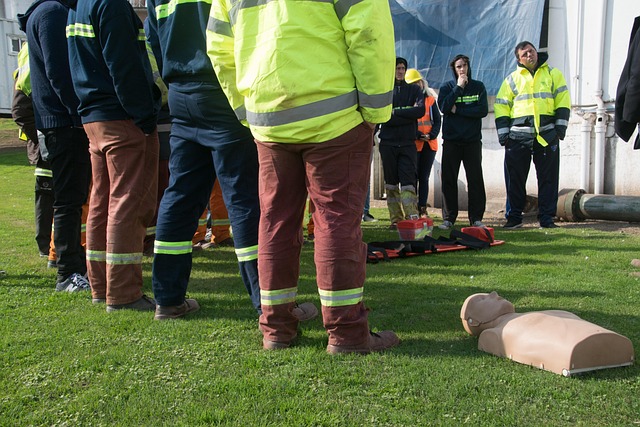
First Aid Guide: You need to know:
Dealing with an emergency situation is something we don’t expect in our daily lives, but it’s also important to have basic first aid knowledge so that, in case of need, you know how to act correctly until professionals are called and arrive at the scene. With this in mind, we decided to share some tips on how to perform these rescue actions in today’s article.
Knowing basic first aid is essential for providing quick and effective assistance in emergency situations, increasing the chances of survival and recovery for those affected. It’s a valuable skill that everyone should learn.
Knowing what to do in the event of an accident or medical emergency, such as cardiac arrest, drowning, burns, or allergy attacks, allows you to act quickly until professional help arrives. Proper first aid can minimize the worsening of injuries or illnesses, preventing complications and promoting a faster recovery.
In certain situations, such as bone fractures or heavy bleeding, immediate and appropriate care can help stabilize the patient’s condition until specialized medical assistance arrives. By understanding basic first aid techniques, you can take the first steps in controlling bleeding, immobilizing injuries, administering cardiopulmonary resuscitation, and other procedures that can prevent further harm to the patient.
By having first aid knowledge, you will feel more confident and prepared to handle emergency situations, giving you the peace of mind to act efficiently and safely. Because it’s a stressful situation, the calmer you can remain, the more in control you will be, and you will also instill confidence in the injured person.
Stay with us to learn the tips you need to perform first aid.
Fundamental Principles of first Aid:
Before we delve deeper into the essential tips for administering first aid, we thought it would be helpful to provide the basics of performing these procedures. We’d like to emphasize that this assistance must be performed by trained and qualified personnel, as improper intervention can cause harm to the victim.
However, we also understand that we don’t always have a healthcare professional at our side, and we need to take immediate action to preserve the life of someone in need, quickly and efficiently.
Therefore, keep in mind that, no matter how well you know how to perform these maneuvers, always seek professional help after providing first aid.
The fundamental principles of first Aid are:
Preserve life: The primary objective of first aid is to prevent death or worsening of the injured or ill person’s health.
Prevent complications: Life-saving maneuvers should be performed to prevent further complications, such as infections, secondary injuries, or worsening of the victim’s condition.
Promote well-being: This assistance should be provided in a way that calms and reassures the victim, providing comfort and relief from pain or discomfort.
Ensure safety: It is essential to ensure the safety of the victim, as well as of rescuers and other bystanders. Safety measures must be taken to avoid additional risks.
Act appropriately: It is important to act in accordance with first aid knowledge and skills, avoiding unnecessary actions or actions that could worsen the situation.
Call for professional help: In more serious cases or when first aid is not sufficient, it is essential to call for professional help immediately, such as emergency medical services. Now that we’ve got this in mind, let’s move on to the first aid tips in the next section.
Many companies are looking for healthcare professionals to provide greater job security for their employees. National Emergency Medical Service and private hospitals are always seeking this type of professional. Click here for first aid course in UAE
These professionals can also work in sectors such as industries, shopping malls, condominiums, stadiums, event venues, parks, and conservation areas, among others.
Did you enjoy our post today? Leave your opinion in the comments. But before we leave, we have a blog post recommendation that discusses another area of expertise within the healthcare sector, but one that is extremely important for the elderly.

